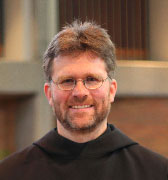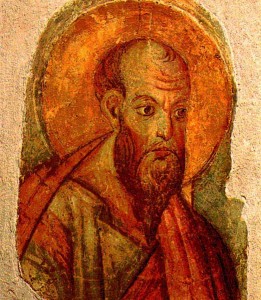[powerpress]
 “O sacred Lord of ancient Israel,
“O sacred Lord of ancient Israel,
who showed yourself to Moses in the burning bush,
who gave him the holy law on Sinai mountain: come,
stretch out your mighty hand to set us free.â€
Isaiah had prophesied, “But He shall judge the poor with justice, and decide aright for the land’s afflicted. He shall strike the ruthless with the rod of his mouth, and with the breath of his lips he shall slay the wicked. Justice shall be the band around his waist, and faithfulness a belt upon his hips.†(11:4-5); and “Indeed the Lord will be there with us, majestic; yes the Lord our judge, the Lord our lawgiver, the Lord our king, he it is who will save us.†(33:22).
For greater text and musical credit visit
the Discerning Hearts O Antiphon page
Choral Music by Bob Chilcott
Performed by the BBC Singers
Tags: burning bush, Israel, law, o adonai, o antiphon, O sacred Lord of ancient Israel
This entry was posted on Thursday, December 18th, 2014 at 12:22 am
You can follow any responses to this entry through the RSS 2.0 feed.
 Episode 13 – The Holy Rule of St. Benedict: A Spiritual Path for Today’s World with Fr. Mauritius Wilde O.S.B., PhD.
Episode 13 – The Holy Rule of St. Benedict: A Spiritual Path for Today’s World with Fr. Mauritius Wilde O.S.B., PhD.
In place of self-righteousness…seeking God
[powerpress]
From the Holy Rule of St. Benedict:
CHAPTER LVIII
Of the Manner of Admitting BrethrenLet easy admission not be given to one who newly cometh to change his life; but, as the Apostle saith, “Try the spirits, whether they be of God” (1 Jn 4:1). If, therefore, the newcomer keepeth on knocking, and after four or five days it is seen that he patiently beareth the harsh treatment offered him and the difficulty of admission, and that he persevereth in his request, let admission be granted him, and let him live for a few days in the apartment of the guests.
But afterward let him live in the apartment of novices, and there let him meditate, eat, and sleep. Let a senior also be appointed for him, who is qualified to win souls, who will observe him with great care and see whether he really seeketh God, whether he is eager for the Work of God, obedience and humiliations. Let him be shown all the hard and rugged things through which we pass on to God.
If he promiseth to remain steadfast, let this Rule be read to him in order after the lapse of two months, and let it be said to him: Behold the law under which thou desirest to combat. If thou canst keep it, enter; if, however, thou canst not, depart freely. If he still persevereth, then let him be taken back to the aforesaid apartment of the novices, and let him be tried again in all patience. And after the lapse of six months let the Rule be read over to him, that he may know for what purpose he entereth. And if he still remaineth firm, let the same Rule be read to him again after four months. And if, after having weighed the matter with himself he promiseth to keep everything, and to do everything that is commanded him, then let him be received into the community, knowing that he is now placed under the law of the Rule, and that from that day forward it is no longer permitted to him to wrest his neck from under the yoke of the Rule, which after so long a deliberation he was at liberty either to refuse or to accept.
Let him who is received promise in the oratory, in the presence of all, before God and His saints, stability, the conversion of morals, and obedience, in order that, if he should ever do otherwise, he may know that he will be condemned by God “Whom he mocketh.” Let him make a written statement of his promise in the name of the saints whose relics are there, and of the Abbot there present. Let him write this document with his own hand; or at least, if he doth not know how to write, let another write it at his request, and let the novice make his mark, and with his own hand place it on the altar. When he hath placed it there, let the novice next begin the verse: “Uphold me, O Lord, according to Thy word and I shall live; and let me not be confounded in my expectations” (Ps 118[119]:116). Then let all the brotherhood repeat this verse three times, adding the Gloria Patri.
The let that novice brother cast himself down at the feet of all, that they may pray for him; and from that day let him be counted in the brotherhood. If he hath any property, let him first either dispose of it to the poor or bestow it on the monastery by a formal donation, reserving nothing for himself as indeed he should know that from that day onward he will no longer have power even over his own body.
Let him, therefore, be divested at once in the oratory of the garments with which he is clothed, and be vested in the garb of the monastery. But let the clothes of which he was divested by laid by in the wardrobe to be preserved, that, if on the devil’s suasion he should ever consent to leave the monastery (which God forbid) he be then stripped of his monastic habit and cast out. But let him not receive the document of his profession which the Abbot took from the altar, but let it be preserved in the monastery.
Father Mauritius Wilde, OSB, Ph.D., did his philosophical, theological and doctoral studies in Europe. He is the author of several books and directs retreats regularly. He serves as Prior of our monastery in Schuyler.
 For more information about the ministry of the the Missionary Benedictines of Christ the King Priory in Schuyler, Nebraska visit here:
For more information about the ministry of the the Missionary Benedictines of Christ the King Priory in Schuyler, Nebraska visit here:
Tags: Gloria Patri, law, obedience, spirits
This entry was posted on Tuesday, December 3rd, 2013 at 9:43 am
You can follow any responses to this entry through the RSS 2.0 feed.
Works of the Law
[powerpress]
In Romans and Galatians, St. Paul warns about those trying to justify themselves before God by following the works of the Law.Â
following the works of the Law.Â
To properly understand this, we must look at the historical context. As we read in the Acts, there was a group in the early Church called the “Judaizers,â€1 which taught that Gentile converts to Christianity must be circumcised and follow the kosher laws.
Paul says in no uncertain terms that those trying to be saved through these Old Testament works of the Law have rejected Christ and lost their salvation.
The attitude of the Judaizers is contrasted with the faith of Abraham,2 who trusted and obeyed God even to the point of offering his own son, Isaac. Paul’s point is not that our works have no bearing on our salvation, but rather that these particular Jewish rituals were not necessary for eternal life.
For the same Romans that teaches “a man is justified by faith apart from works of the law,â€3 also says that God “shows no partiality … [for] he will render to everyone according to his works..†4
There is no contradiction, as long as we correctly understand what Paul meant by the works of the law.
1 -Â cf. Acts 15:1-6, etc.
2 -Â Rom. 4:1ff
3 -Â 3:28
4 -Â 2:6-10
Tags: catholic apologetics, eternal life, faith, Faith Check, law, st. paul, works
This entry was posted on Monday, November 25th, 2013 at 7:06 am
You can follow any responses to this entry through the RSS 2.0 feed.
 Episode 11 – The Holy Rule of St. Benedict: A Spiritual Path for Today’s World with Fr. Mauritius Wilde O.S.B., PhD.
Episode 11 – The Holy Rule of St. Benedict: A Spiritual Path for Today’s World with Fr. Mauritius Wilde O.S.B., PhD.
Instead of circling around one’s self, hospitality
[powerpress]
From the Holy Rule of St. Benedict:
CHAPTER LIII
Of the Reception of GuestsLet all guests who arrive be received as Christ, because He will say: “I was a stranger and you took Me in” (Mt 25:35). And let due honor be shown to all, especially to those “of the household of the faith” (Gal 6:10) and to wayfarers.
When, therefore, a guest is announced, let him be met by the Superior and the brethren with every mark of charity. And let them first pray together, and then let them associate with one another in peace. This kiss of peace should not be given before a prayer hath first been said, on account of satanic deception. In the greeting let all humility be shown to the guests, whether coming or going; with the head bowed down or the whole body prostrate on the ground, let Christ be adored in them as He is also received.
When the guests have been received, let them be accompanied to prayer, and after that let the Superior, or whom he shall bid, sit down with them. Let the divine law be read to the guest that he may be edified, after which let every kindness be shown him. Let the fast be broken by the Superior in deference to the guest, unless, perchance, it be a day of solemn fast, which cannot be broken. Let the brethren, however, keep the customary fast. Let the Abbot pour the water on the guest’s hands, and let both the Abbot and the whole brotherhood wash the feet of all the guests. When they have been washed, let them say this verse: “We have received Thy mercy, O God, in the midst of Thy temple” (Ps 47[48]:10). Let the greatest care be taken, especially in the reception of the poor and travelers, because Christ is received more specially in them; whereas regard for the wealthy itself procureth them respect.
Let the kitchen of the Abbot and the guests be apart, that the brethren may not be disturbed by the guests who arrive at uncertain times and who are never wanting in the monastery. Let two brothers who are able to fulfil this office well go into the kitchen for a year. Let help be given them as they need it, that they may serve without murmuring; and when they have not enough to do, let them go out again for work where it is commanded them. Let this course be followed, not only in this office, but in all the offices of the monastery — that whenever the brethren need help, it be given them, and that when they have nothing to do, they again obey orders. Moreover, let also a God-fearing brother have assigned to him the apartment of the guests, where there should be sufficient number of beds made up; and let the house of God be wisely managed by the wise.
On no account let anyone who is not ordered to do so, associate or speak with guests; but if he meet or see them, having saluted them humbly, as we have said, and asked a blessing, let him pass on saying that he is not allowed to speak with a guest.
Father Mauritius Wilde, OSB, Ph.D., did his philosophical, theological and doctoral studies in Europe. He is the author of several books and directs retreats regularly. He serves as Prior of our monastery in Schuyler.
 For more information about the ministry of the the Missionary Benedictines of Christ the King Priory in Schuyler, Nebraska visit here:
For more information about the ministry of the the Missionary Benedictines of Christ the King Priory in Schuyler, Nebraska visit here:
Tags: humility, law, prayer, work
This entry was posted on Monday, November 18th, 2013 at 3:32 pm
You can follow any responses to this entry through the RSS 2.0 feed.

